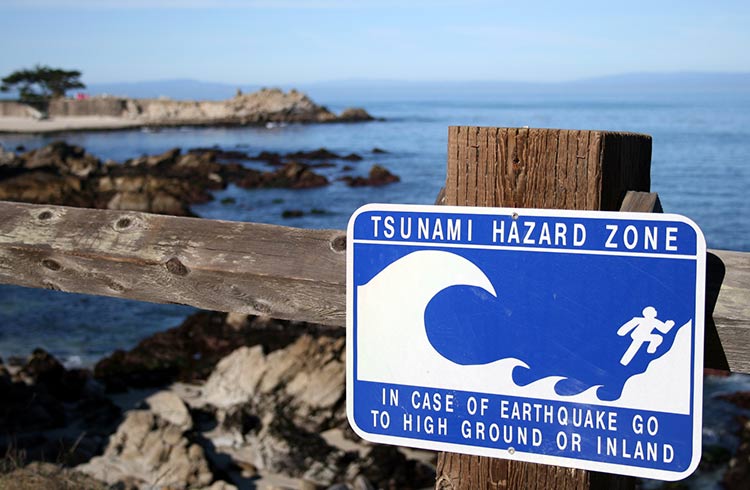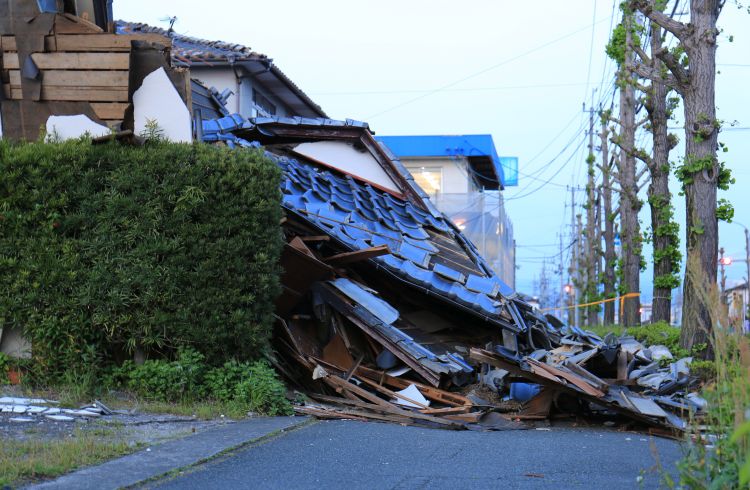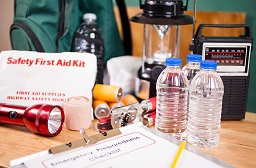What to Do When Disaster Strikes: Travel Safety Tips
Disasters can occur anywhere at anytime. To be as prepared as you can be, read these basic survival tips for the off chance you're caught up in a flood, earthquake, hurricane or tsunami.
 Photo © iStock/danikancil
Photo © iStock/danikancil
Floods, quakes, hurricanes, tsunamis and attacks can occur anywhere at anytime, so having some knowledge of safety and survival tips could prove vital when you're traveling overseas.
Here's how you can safe-guard your own health and safety in an earthquake or disaster affected area.
If you have access to a working phone or the internet
- Make contact with family, friends and your local embassy and let them know that you're safe.
If you're injured or fall ill
- If you have a policy with us, contact World Nomads' Worldwide 24 hour Emergency Assistance service as soon as possible, they'll guide you through what to do next. Follow their advice to the letter
- If you're not covered under a travel insurance policy, seek attention at the nearest medical clinic or ask for directions to your nearest embassy.
Beware of the environment
- Avoid downed power lines and disaster-caused hazards. Use battery-powered flashlights and lanterns, rather than candles, gas lanterns or torches
- Following a disaster there may be rapidly moving water that can also carry infections
- Disasters resulting in massive structural damage can also result in exposure to chemical or biologic contaminants (asbestos)
- In the case of earthquakes, do not return to your hotel/accommodation, or any building, if they are in any way damaged as aftershocks could cause a collapse
- Move to the nearest open area (a football field, a park) away from damaged buildings, trees or roads where powerlines may have fallen
- If you are in an area prone to landslides and mudslides (very steep slopes, canyons, high rainfall zones) be aware of any sudden increase or decrease in water level on a stream or creek that might indicate debris flow upstream
- A trickle of flowing mud may precede a larger flow
- Look for tilted trees, telephone poles, fences, or walls, and for new holes or bare spots on hillsides
- Listen for rumbling sounds that might indicate an approaching landslide or mudflow.
Keeping safe
- Disease can spread very quickly post disaster, so ensure you protect against injuries and infections by wearing sturdy footwear
- Tetanus is a potential health threat for cuts and grazes
- Frequent hand washing helps keep germs at bay
- If a traveler becomes unwell within six weeks of returning home and has fever, rash, respiratory illness or any other unusual symptoms, advise a physician of having just returned from a disaster-affected region
- Drink only bottled, boiled or disinfected water. For more information refer to the CDC website
- In the event of diarrhea, replace lost fluids with clean drinking water or oral rehydration solutions
- Keep close tabs on personal belongings, passport and money.
Getting out
- Follow all advice from either your medical assistance service and/or local emergency service team and authorities to move to safe zones or transport to take you to the airport for evacuation.
Chris Noble, General Manager of World Nomads says,
"Being caught in the middle of a natural disaster is both terrifying and confronting, but it's also the one situation where you need to remain as calm as possible. Help those around you if able, take every precaution to avoid placing yourself at further risk and follow all directions from emergency services".
Related articles
Simple and flexible travel insurance
You can buy at home or while traveling, and claim online from anywhere in the world. With 150+ adventure activities covered and 24/7 emergency assistance.
Get a quote


No Comments